Delta next governor, commitments and betrayals
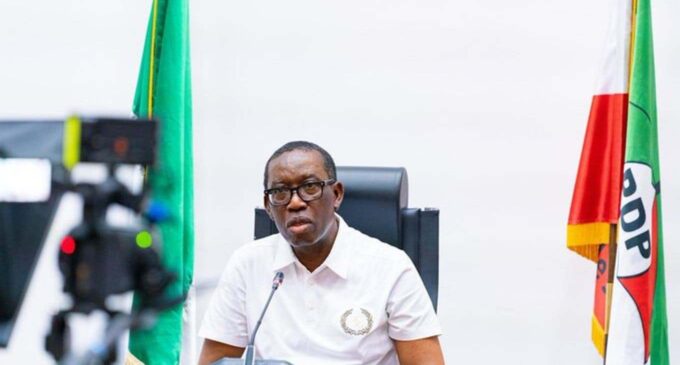
As politicians ramp up activities towards the materialization of the yielding of political power to a new crop of leaders through a toss-up of the baton currently being held by APC as the ruling party at the centre, adherence to commitments made by political actors and betrayals of the trust arising from the promises made at the commencement of the political season presently in its twilight zone are the highest trending events fouling the political atmosphere.
Whereas the scenario described above is a national malaise, it is particularly so and more pronounced in Delta state which by its very nature, is a microcosm of Nigeria. The tagging of the state as mini Nigeria is derived from the fact that Delta state is comprised of a multiplicity of ethnic groups in the manner that our country is peopled by over 250 tribes and tongues.
Unlike the situation at the national level where the presidency rotation agreement between the north and south introduced and implemented since 1999 is on the verge of being jettisoned, the rotation of governorship position between the three senatorial districts of central, south, and north of delta state has remained sacrosanct.
But there is a snag. And it is that the standing political agreement introduced by the 1999 political class, (also known as Ibori political family) led by chief James Onanefe Ibori, governor of the state, (1999-2007) is beset with what l would like to term political chicanery.
I will dwell more on that unfortunate situation shortly. But in the interim, it is apropos that l apprise readers of the back story behind the rotation of governorship positions between the three political zones of Delta state.
Even when the majority carries the vote is the mantra and indeed the fulcrum of democracy, chief Ibori as the pioneer governor of the state when multi-party democracy returned to our country in 1999, undoubtedly demonstrated a true spirit of statesmanship by adopting the concept of rotation of governorship power between the three senatorial zones in the state.
Ideally, the Urhobos who are the largest ethnic group in the state could have continued to produce the governor in perpetuity by leveraging its dominant population size.
But it is the Ibori driven concept of plurality of political power characterized by a sort of revolving door leadership style that has facilitated the governorship of the state between and around the three zones that has neutralized the tension that perhaps might have escalated into ethnic conflicts that could have degenerated into severe crises as witnessed in other states.
Allowing discontentment amongst members of the marginalized zones to fester in a state that is already a tinderbox of sorts could have had disastrous consequences.
Therefore, the initiative of rotating the governorship position in a power-sharing equation promoted by Ibori in 1999 that has been sustained to date, is quite noble.
It is useful pointing out that a situation whereby the majority tribe is dominating in governance by always producing the governor of the state persists in River state. And it is reflected in the political arrangement whereby the so-called ‘Upland People‘ have been monopolizing the governorship to the consternation of the ‘Riverine People’ does not augur well for harmonious co-existence. Hence, the Riverine people of the state have been vociferous in their denunciation of the prevailing jeopardy that they have been contending with. Now, the unsavory challenge in Rivers state could have been replicated in Delta state. But thanks to Ibori, such a tension point has been absent since 1999 in the state.
The Rivers state experience is not different from the atmosphere in Benue state where the Tiv ethnic group which is the majority tribe has been the source of the governor of the state since 1999 till date. The ldoma ethnic group that is the second largest in Benue state, has only been allowed the opportunity of having their son take the number two position as deputy governor. And they have been doing so grudgingly.
The governorship circumstances outlined above are the political environment that abounds in other states nationwide.
It is worth recalling that the governorship pendulum started swinging from delta central with chief James Ibori as governor to delta south in 2007 with Dr Emmanuel Uduaghan becoming governor. Incidentally, there was contention for the governorship position by senator James manager, the pioneer chairman of the party in 1999 who is of Ijaw ethnic stock and which together with Itsekiris and Isokos, make up Delta south senatorial zone. But following dexterous management of the situation by Chief Ibori via political horse-trading, a damning schism was averted.
In like manner, in 2015, another conflict ensued between governor Uduaghan and then-commissioner for health, Ifeanyi Okowa when the governorship mantle was due to be shifted from the south to north.
Again, Governor Ibori intervened and along with other stakeholders ensured that the throne was mounted by the incumbent governor, Senator Ifeanyi Okowa. As the governorship rotation is coming to a full circle, having started from central, been anchored in the south and north zones, and is now about to return to where rotation commenced, the contest for the governorship of the state has been tossed up once again.
Going by the construct of the rotation calculus, the candidate that would be supported to emerge from Delta central zone that the governorship pendulum is about to swing is usually known ahead of time, based on prior understanding by the leadership of the party.
Thus, Dr Emmanuel Uduaghan who took over from chief Ibori was known ahead of time, even though other aspirants like senator James manager made a bid for it and then chief Ifeanyi Okowa, another stakeholder also contested against him.
A similar situation arose in 2015 when Dr Uduaghan who was via a similar pre-arrangement supposed to pass the baton to the next governor from the zone whose turn it is to produce the next governor. He initially demurred, leading to a major spat in which Ibori political forces prevailed and Okowa mounted the throne.
As is typical of political games, the nasty battle that had ensured involved several stakeholders including Olorogun David Edevbie, a pioneer member of the class of 1999 (Ibori political family) and ex-commissioner for finance 1999-2006, as well as ex-principal private secretary to ex-president Umaru Yar’adua of blessed memory, who contested for the office of governor against the incumbent.
In the manner that Uduaghan and Okowa Slugged it out in 2007 and the latter, Okowa became the secretary to the state government (2007 2011) even as the former, Uduaghan assumed the governorship position, Edevbie has also served as commissioner for finance and later as chief of staff under governor Okowa’s watch.
Following that established pattern of governorship position succession, which is based on gentleman agreement, Edevbie is supposed to be the candidate with the backing of the political class of 1999, of which all the three governors, Ibori (1999-2007) Uduaghan (2007-2015) and Okowa (2015 till date belong and which governor Okowa has recently referred to as an Ibori political family.
As things currently stand, something is fundamentally amiss within the 1999 political class, because the governorship calculus has gone askew. And in Delta state political space hitherto known for its political tranquility and a national role model for its equitable power-sharing matrix, there is a sort of bedlam that has been escalated by the cacophony of voices that are conjuring the biblical narrative of Tower of Babel.
With the governorship succession structure unhinged in delta state, which is the reality that we all must accept in this 11th hour, would the continued dominance of political leadership in the state since 1999 by the PDP not be in jeopardy as the motley crowd of contenders and their backers fight dirty?
The incumbent governor of Delta state that prides itself as ‘The Big Hearts’ senator Ifeanyi Okowa has, in trying to allay the palpable fears of party stakeholders and faithful, declared that there is no crisis in Ibori political family. Given the commitments in 2015 and betrayals of trust currently polluting the political atmosphere, can the governor’s assurances be worthy of its weight or taken with a pinch of salt?
Another nagging question is: if indeed the ongoing shenanigans are part of playing politics as governor Okowa had assured party faithful, (who have been in quandary as to what is really going on) is it not politricks that has been dubiously unfurled? One more question that deserves to be answered urgently is: after the horse-trading that has actually taken a massive toll, having degenerated into a political bloodletting exercise with consequential casualties, would PDP still be robust and sturdy enough to sustain its control of political leadership in delta state?
Those are the critical questions that delegates must ponder as they prepare to cast their votes for the best man for the job of next governor of Delta state in 2023 of which the profile of David Edevbie fits perfectly.
And he is not being smug about it hence he is working assiduously to earn the votes of delegates.
Magnus Onyibe, an entrepreneur, public policy analyst, author, development strategist, alumnus of Fletcher School of Law and Diplomacy, Tufts University, Massachusetts, USA and a former commissioner in Delta state government, sent this piece from Lagos


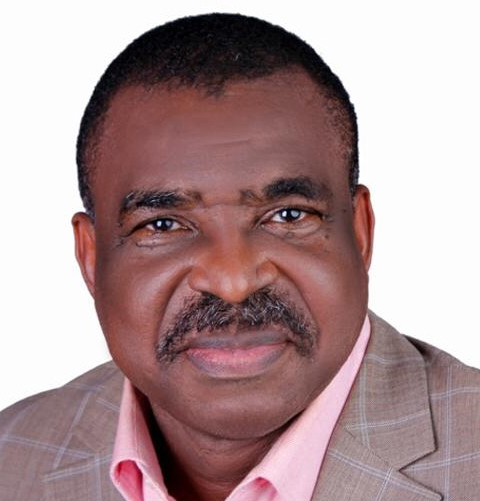



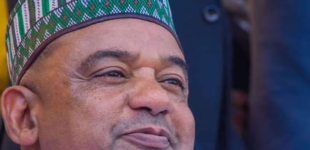

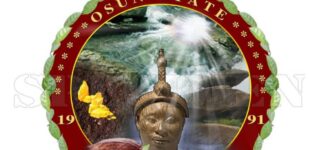

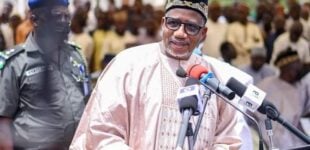


There are no comments at the moment, do you want to add one?
Write a comment